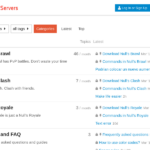prc.gov.ph Reviews
is prc.gov.ph legitimate or a scam?Why is the trust score of prc.gov.ph very high?
The Professional Regulation Commission (PRC) is a government agency in the Philippines responsible for regulating and supervising various professions and professionals. It was established under the Professional Regulation Commission Act of 1973 and is tasked with ensuring that professionals in different fields meet the necessary standards of competence and ethical conduct.
Key Functions:
1. Licensing and Registration: PRC is responsible for issuing licenses and registering professionals in various fields, including but not limited to engineering, nursing, accountancy, architecture, and teaching. This process involves evaluating the qualifications and credentials of individuals to ensure they meet the requirements for practicing their respective professions.
2. Professional Board Examinations: PRC conducts board examinations for different professions to assess the knowledge and skills of aspiring professionals. These examinations are designed to uphold the quality and standards of the professions and are typically held at specified testing centers across the country.
3. Regulatory Oversight: The commission exercises regulatory oversight over licensed professionals, ensuring that they adhere to professional standards and ethical conduct. This includes the implementation of continuing professional development (CPD) programs to promote ongoing learning and skill enhancement among professionals.
4. Enforcement of Professional Standards: PRC is responsible for enforcing professional standards and taking disciplinary action against professionals who violate regulations or engage in unethical behavior. This may involve investigating complaints, conducting hearings, and imposing sanctions when necessary.
5. Collaboration with Professional Organizations: PRC works in collaboration with professional organizations and associations to address issues relevant to specific professions, promote professional development, and uphold the integrity of the respective fields.
Online Services:
In recent years, PRC has expanded its online services to provide greater convenience for professionals and streamline various processes. Some of the online services offered by PRC include:
1. Online Application for Licensure Examinations: Aspiring professionals can apply for licensure examinations through the PRC website, which simplifies the application process and reduces the need for physical paperwork.
2. Online Verification of Licenses: PRC provides an online verification system that allows individuals and organizations to verify the validity of professional licenses. This is particularly useful for employers and other stakeholders who need to confirm the credentials of professionals.
3. Online Renewal of Professional Identification Cards (PIC): Licensed professionals can renew their PIC online, eliminating the need to visit PRC offices in person. This helps in expediting the renewal process and ensures that professionals can maintain their active status.
4. Online CPD Monitoring: PRC has implemented an online system for monitoring and recording the CPD units earned by professionals. This system allows professionals to track their CPD compliance and submit their CPD records electronically.
Overall, the Professional Regulation Commission plays a crucial role in upholding professional standards and ensuring the competence and integrity of various professions in the Philippines. Its regulatory functions, online services, and collaboration with professional organizations contribute to the development and oversight of a diverse range of professions in the country.”
the reasons behind this review :
The Professional Regulation Commission (PRC) is a government agency in the Philippines responsible for regulating and supervising various professions and professionals. It was established under the Professional Regulation Commission Act of 1973 and is tasked with ensuring that professionals in different fields meet the necessary standards of competence and ethical conduct. Key Functions: 1. Licensing and Registration: PRC is responsible for issuing licenses and registering professionals in various fields, including but not limited to engineering, nursing, accountancy, architecture, and teaching. This process involves evaluating the qualifications and credentials of individuals to ensure they meet the requirements for practicing their respective professions. 2. Professional Board Examinations: PRC conducts board examinations for different professions to assess the knowledge and skills of aspiring professionals. These examinations are designed to uphold the quality and standards of the professions and are typically held at specified testing centers across the country. 3. Regulatory Oversight: The commission exercises regulatory oversight over licensed professionals, ensuring that they adhere to professional standards and ethical conduct. This includes the implementation of continuing professional development (CPD) programs to promote ongoing learning and skill enhancement among professionals. 4. Enforcement of Professional Standards: PRC is responsible for enforcing professional standards and taking disciplinary action against professionals who violate regulations or engage in unethical behavior. This may involve investigating complaints, conducting hearings, and imposing sanctions when necessary. 5. Collaboration with Professional Organizations: PRC works in collaboration with professional organizations and associations to address issues relevant to specific professions, promote professional development, and uphold the integrity of the respective fields. Online Services: In recent years, PRC has expanded its online services to provide greater convenience for professionals and streamline various processes. Some of the online services offered by PRC include: 1. Online Application for Licensure Examinations: Aspiring professionals can apply for licensure examinations through the PRC website, which simplifies the application process and reduces the need for physical paperwork. 2. Online Verification of Licenses: PRC provides an online verification system that allows individuals and organizations to verify the validity of professional licenses. This is particularly useful for employers and other stakeholders who need to confirm the credentials of professionals. 3. Online Renewal of Professional Identification Cards (PIC): Licensed professionals can renew their PIC online, eliminating the need to visit PRC offices in person. This helps in expediting the renewal process and ensures that professionals can maintain their active status. 4. Online CPD Monitoring: PRC has implemented an online system for monitoring and recording the CPD units earned by professionals. This system allows professionals to track their CPD compliance and submit their CPD records electronically. Overall, the Professional Regulation Commission plays a crucial role in upholding professional standards and ensuring the competence and integrity of various professions in the Philippines. Its regulatory functions, online services, and collaboration with professional organizations contribute to the development and oversight of a diverse range of professions in the country.
| Positive Points | Negative Points |
|---|---|
Website content is accessible No spelling or grammatical errors in site content High review rate by AI Archive Age is quite old Domain ranks within the top 1M on the Tranco list | Whois data is hidden |
How much trust do people have in prc.gov.ph?
WHOIS Data Status :
Hidden
Title :
Professional Regulation Commission/Professional Regulation Commission/Foresters | Professional Regul
Website Rank :
67451
Age of Archive :
23 year(s) 10 month(s) 7 day(s)
SSL Status :
Invalid
IP : 122.53.86.248
Target : ns1.pldt.net
IP : 58.71.1.34
Target : ns2.pldt.net
IP : 58.71.2.4
This website was last scanned on December 28, 2024

wndu.com
https://wndu.com redirected to https//www.wndu.com during the time we crawled it. WNDU.com is the website for WNDU-TV, a local news station serving South Bend, Indiana, and the surrounding area. It provides...

panorama.com.al
https://panorama.com.al redirected to http//www.panorama.com.al during the time we crawled it. Gazeta Panorama is a well-established Albanian news outlet, with a long history and a significant readership. It's a reputable source...

forum.dnull.xyz
The website forum.dnull.xyz appears to be a forum for discussing private servers developed by a group or individual referred to as "null's team." The servers mentioned are "null's Clash," "null's...

